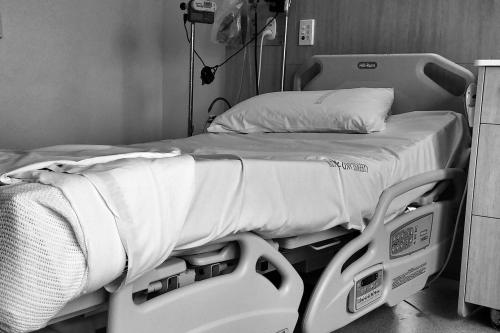From our previous work, with Nuffield Trust and Health Foundation, we know that lockdown had a significant effect on attendance at Emergency Departments (ED). We also know that this effect was very unevenly distributed: some demographic groups stayed away far more than others.
One happy by-product of this work was people getting in touch with further interesting observations and questions. We were able to shed useful light on many of these questions, but one – from Dr Patrick Aldridge, Paediatric Clinical Lead at Frimley Health Trust’s ED – needs more attention and expertise than we have.
So can you help?
Patrick noticed that there seemed to have been almost no drop-off in attendances for those aged under three months. He wondered whether this was a purely local phenomenon, or whether this pattern held nationally.
Patrick’s local data suggested that problems with feeding seemed to be the explanation (and recent research from Italy has suggested a similar pattern), but he then wondered what explanations there might be – and what solutions might therefore follow.
Our look at the data provided partial answers, but raised even more questions. The chart below shows the headline. It shows that Patrick’s local observation held in the national data: rates of ED attendance for infant feeding problems remained largely unaffected by lockdown. This was not true for other causes of attendance.
So, what’s going on? And what could be done to address it?
On one level, maybe the explanation is obvious. Parents of very young babies are unlikely to take chances with feeding. They might see ED as a place to get speedy access to specialist support – even at a time when ED was arguably a dangerous place to be. And this might not be the case for the other diagnoses shown in the chart.
But are there deeper explanations? Causes of causes? Lockdown cut many new parents off from sources of support. This would be both formal service provision, but also informal parents’ groups - and hands on advice from relatives. Did the reduction in this kind of support have a differential effect?
And what about the support these parents were able to access in ED? In the vast majority of cases this amounted to reassurance. So are parents getting what they needed? And is this the core business of ED?
What to do of course depends upon answers to the questions above, but if ED’s role was mainly reassurance and advice, what could be done to provide this outside of ED? And do we now have a very new cohort of parents who are not linked into informal support following the disruption of lockdown? What can be done to make sure that they get good quality support from non-emergency services?
Sometimes analysis gives answers that settle questions. Sometimes it gives answers with associated questions. In this case it just raises questions. So we’re keen to hear different takes on this issue. It may be that we could explore this in subsequent work.
Please get in touch - strategy.unit@nhs.net – if you have any comments, theories or suggestions.



